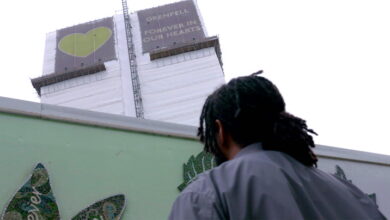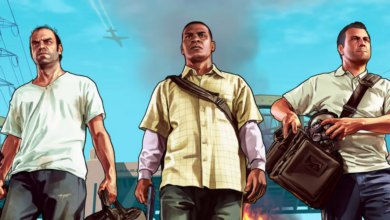In 2012, London was the greatest city in the world. What happened?

In a hired studio space in the London Docklands, nervous glances were being exchanged among the London Olympic press pack. It was 27 January 2012. Six months to go. Danny Boyle had summoned us there, and as he stood over a small model of the Olympic Stadium, done up to look like a field with some sheep in, an imitation Glastonbury Tor at one end and some cotton wool clouds suspended from wire thread, there was a sense of gentle panic among those present.
Was this really it? A field with sheep? All this was underpinned by that typical feeling of British pessimism, but not without good reason.
We all knew the unimaginable extravagance of Beijing could not possibly be surpassed. We also knew that, a month earlier, David Cameron had seen the plans for the opening ceremony and his response had been to immediately double the budget. He was well into his austerity drive by this point. If he’d concluded more money would have to be found for drama students to fanny about in costume as a matter of national emergency, well, it didn’t necessarily bode well.
What we didn’t yet know was that 2012 was shaping up to be what is still the wettest year in UK history. Between that January day and the six months that would follow it, it simply did not stop raining. Quite possibly not once.
In the weeks before the games, ticket holders were being advised to bring wellington boots and ponchos. There were fears that some venues, like the equestrian centre at Greenwich Park, would become Glastonbury-style quagmires.
Kim Gavin, who directed the closing ceremony, was quietly letting it be known that he had been watching videos of open-air rock concerts besieged by rain for ideas on how they might not be ruined. Things that performers could say to lighten the mood, to compel the soaked spectators not to kill the vibe.
It’s probably been forgotten now that a week before the games began, the clouds parted and London had one of its most magnificent weeks of summer weather – the only one of the year.
Seb Coe and David Cameron held a press conference on the concourse outside the stadium. For whatever reason, I was quite possibly the only attendee who had brought sun cream with them. It was passed around with such feverish intensity that it came back almost entirely empty. I have since been informed that some of my Boots Soltan Factor 15 even found its way on to the prime ministerial visage.
Walking to the stadium, exactly 10 years ago, there was a sense that not many of those present had ever felt before. Of being at the very centre of the world. And the centre of the world was a very forgettable bit of London, that a few years before had been an industrial wasteland.
And, taking our seats, there spread out before us was that field with sheep. Not miniature this time, but really rather massive.
There was a Victorian-looking chap playing cricket. Down at the far end, Glastonbury Tor looked kind of OK. Then it started to rain. Hard. The press seats have waterproof covers that can be pulled over TVs and laptops. Many reporters pulled them over their heads as well.
That was that, then. A washout. A disaster. And then, after about five minutes at the very most, it just stopped.
Few things have ever been discussed in more overblown terms than that night in Stratford, but nevertheless I do not consider it too over the top to say that had that passing shower stuck around, the cultural history of Britain in the 21st century would have been very different indeed.
In the decades before London 2012, there were few more popular British pastimes than for British people to write books about what it means to be British – or more commonly, English. AA Gill had a go in 2006. Jeremy Paxman did the same a year later, to name but two.
That so many books could be written on the same nebulous topic is precisely because the question can never actually be answered.
In the decade since 2012, there have not been quite so many books on the subject, having been replaced by what feels like an even larger cottage industry, which is writing endlessly about the opening ceremony itself. One imagines, hopes even, that this 10-year anniversary might be the point at which that too may be permitted to subside into history.
There is precious little that remains unsaid. On a personal note, the most memorable moment of the night was when the pre-recorded video rolled on the big screens and Daniel Craig emerged from a helicopter and strolled into Buckingham Palace. I knew exactly what was coming, but with a sense of slight horror. Four months previously, The Sun on Sunday had run a full-page story on how the Queen would declare the games open by jumping out of a helicopter with James Bond. But the date was 1 April. I, like many others, decided not to follow it up.
Every Olympic opening ceremony is essentially the same. The host nation treats itself to the luxury of telling the world its national story, with as much imagination and audacity as it can manage. Beijing had an entire dance routine on how China had invented paper. Sochi had a War and Peace ballet dance.
Danny Boyle had already told us that he knew it would be futile to try and compete with Beijing, but he hoped he might be able to bring more “humanity” to bear on the night. That he might be able to celebrate “the British sense of humour”.





